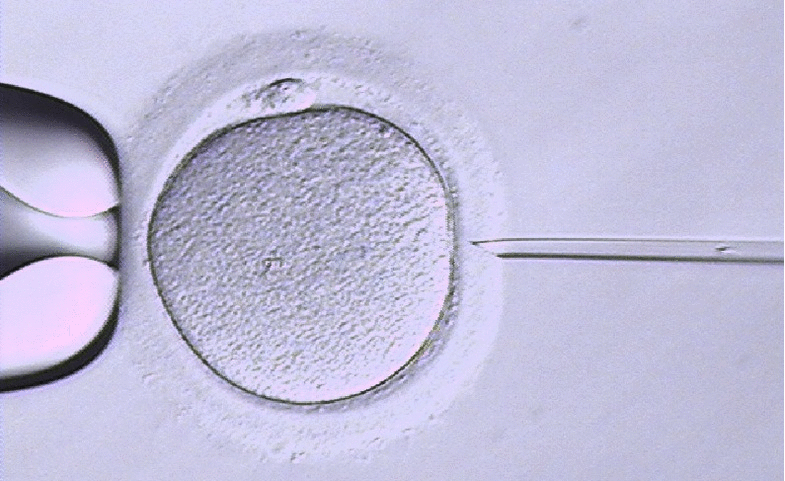Difference between ICSI and IVF
Intracytoplasmic
Sperm Injection or ICSI is a
type of IVF procedure, in which a sperm is directly placed inside an egg for
the fertilization to occur. Almost half of the entire percentage of people
suffering from infertility problems goes through an ICSI procedure. This is the
most successful treatment when there is a fertility problem in the male
partner. Often couples with older male partner are known to go through an ICSI procedure.
Success rates vary from
patient to patient, but on an average the intracytoplasmic
sperm injection success rate can be counted to 25%. An ICSI procedure
fertilizes 50-80% eggs, but fertilization of all the eggs is not guaranteed.
But owing to the success rate, you can say that this procedure is fairly
successful.
It is important to know
the intracytoplasmic sperm injection
cost before proceeding for this treatment. This procedure alone cost about
700-1500 US Dollar. The medications, ultrasounds, doctor’s fee and others are
extra. Is it worth it? Although there has been considerable debate, many
couples go for an ICSI procedure
when all else fails. No infertility procedure can guarantee a baby. The final
decision lies with you, after considering the pros and cons and after detailed
consultation with your physician.

Difference between
ICSI and IVF
The main difference between an IVF and intracytoplasmic sperm injection is the method of achieving
fertility. Before a sperm can fertilize en egg, the head of the sperm must be
attached to the wall outside the egg. Due to male infertility, sperms have difficulty
attaching themselves to the egg. Hence, an ICSI
treatment is used, where the sperm is directly placed into the cytoplasm of
the egg.
In a traditional IVF however, more than thousands of sperms
are placed near the egg. Out of all of them, one sperm swims the fastest to
achieve fertilization of the egg. The procedure is not assisted, as we see in
an ICSI.
Main Causes of Going
through an ICSI Treatment
As mentioned earlier, an ICSI treatment is taken only when the male partner suffers from
infertility. There can be many causes for infertility in men:
·
A male is unable to produce sperms or produces
very few sperms.
·
Sperm immobility.
·
A blockage in the reproductive track which
prevents the sperm from coming out.
·
Surgical removal of the testicles.
·
Presence of high level of anti bodies in the
semen.
·
Using frozen sperm previously extracted from the
male partner.
·
When there has been a previous failure using IVF
treatment.

Intracytoplasmic Sperm Injection Risks
It is rare, but in
general intracytoplasmic sperm injection
risks include certain birth defects. They can be Beckwith-Wiedemann
Syndrome, Angelman Syndrome, Hypospadias and abnormalities associated with sex
chromosomes. Genetic diseases from the male can also be passed on to the baby.
But, not to worry! A successful ICSI procedure and an IVF treatment can always
be expected. Healthy babies are born every day and it is only 1% of the couples
that faces the rarity.
FAQ
Is an ICSI procedure painful?
ICSI procedure is performed when the patient is sedated.
Hence there is minimal or no discomfort. However after the needle insertion,
there can be mild pain and swelling in the particular area, which is temporary
and fades away after a week.
What are the chances of having a twin with an ICSI treatment?
Chances of getting twins and triplets are more in an ICSI treatment. There is a 30-35% chance of having twins and
almost 10% chance of having triplets.
Will all my eggs be used in an ICSI treatment?
It is always recommended to use as many eggs as possible
when undergoing an infertility treatment. Although 50-50% eggs are fertilized
through this procedure, there are no guarantees that all of your eggs will
develop into an embryo. It is only the mature eggs that get fertilized by the
sperm.
What is a split ICSI?
Split ICSI is for
all couples who want to know their fertilization capacity. In this procedure ICSI is performed only on the mature
eggs and the rest is incubated with the sperms. At least eight mature eggs with
strong potential are identified for the insemination of sperm. If this fails,
then the rest of the eggs are used.
What if my eggs don’t fertilize?
An ICSI procedure is used when a traditional IVF treatment
fails. It is very rare that eggs don’t get fertilized with this method. Your
doctor and the fertility specialist will make sure you get the right medication
and environment where chances are 100% sure.


Comments
Post a Comment